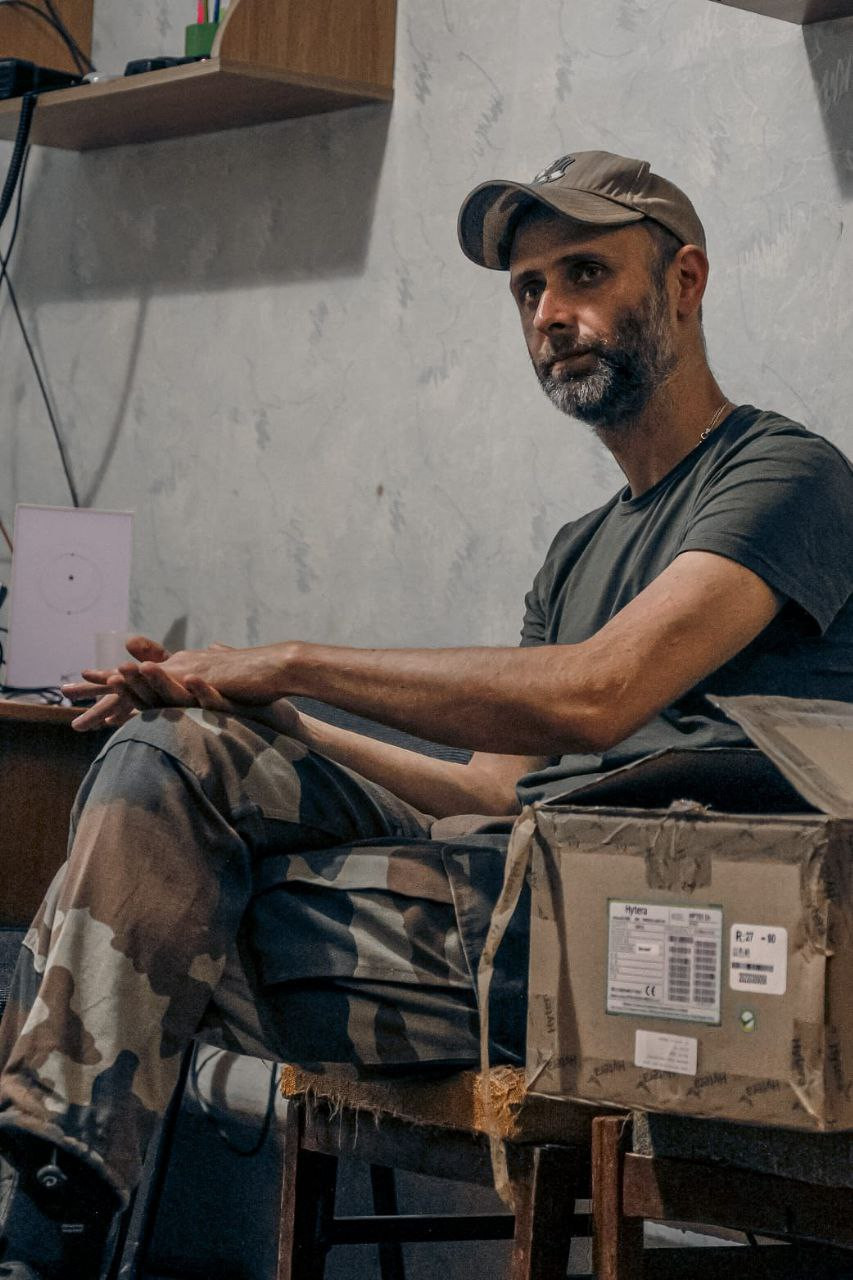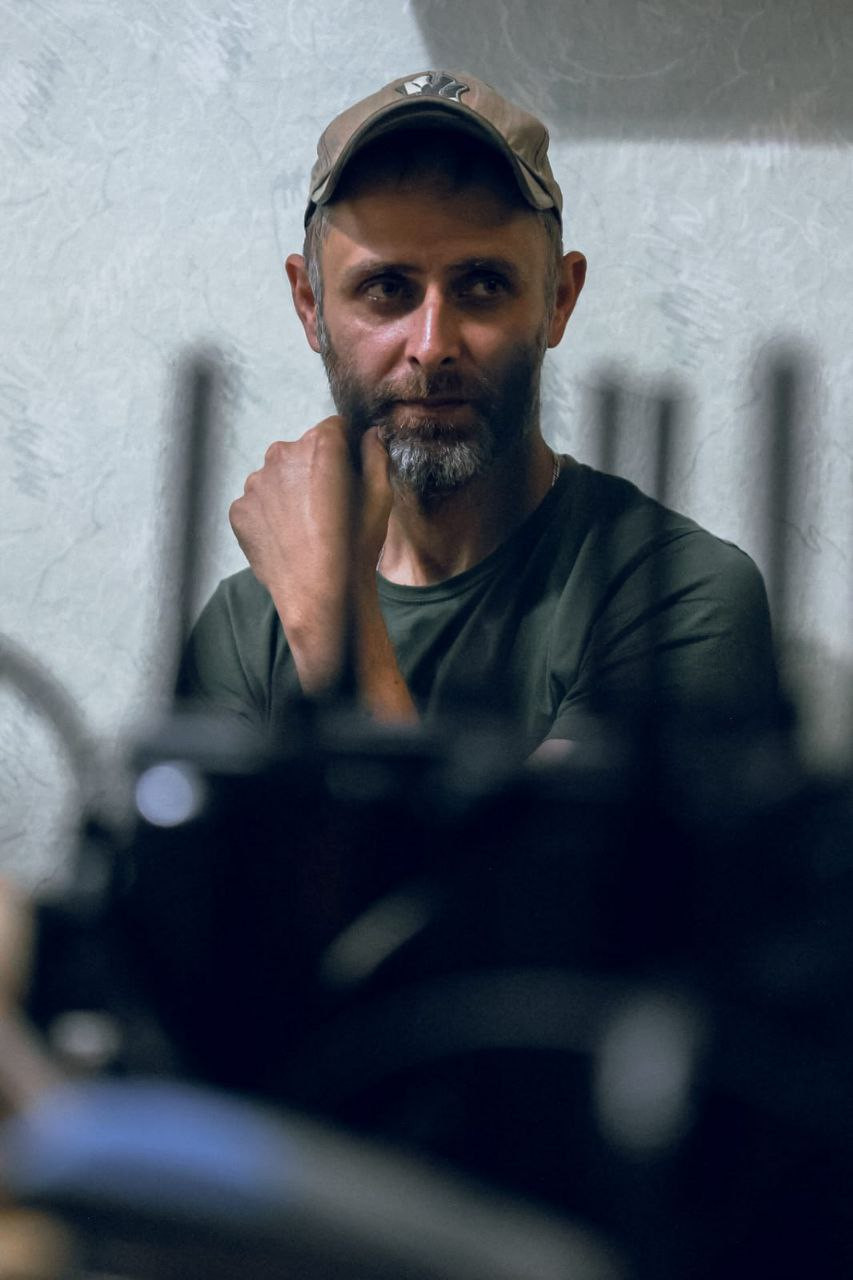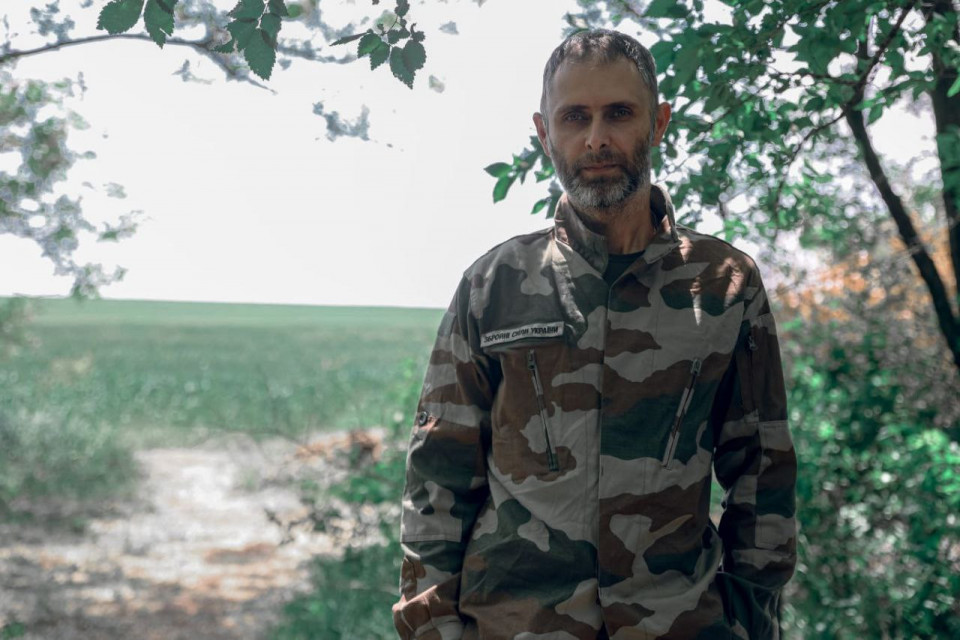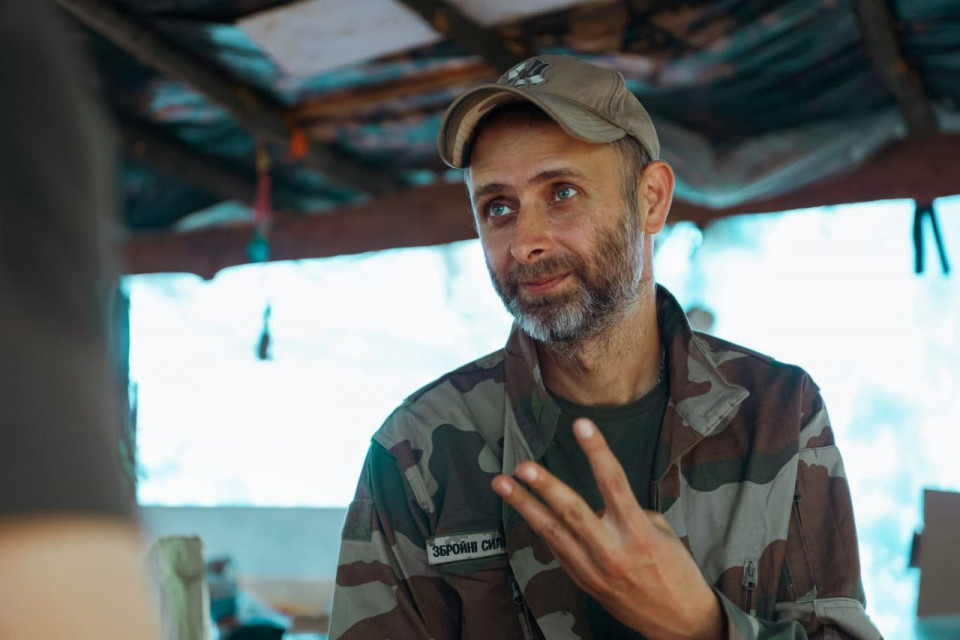
Heroes of Ukraine: Dmytro Paris: All the guys I send to the army, come back safe and sound
Dmytro is deputy commander of the engineering company for moral and psychological support of the AFU's 45th artillery division. Since the beginning of Russian full-scale invasion, he has been fighting at the front.
Espreso tells the man's story.
Dmytro, nicknamed Paris, is deputy commander of the engineering company for moral and psychological support of the 45th artillery division of Ukrainian Armed Forces. He joined the army after February 24, 2022. On the eve of the Russian offensive, the man was at his sister's birthday party. Then the Military Commissariat called him and asked him to show up.
"I woke up in the morning - there was a war in the country," Dmytro recalls. I went to the Military Commissariat and was immediately sent to a unit. The 45th division is a reserve, it was formed already during martial law. So I was offered to enter there. They said there are commanders who served in 2015-2016. I agreed, these people are very responsible."

Not a single guy I sent to the front died
Dmytro worked as a lawyer in civilian life. He also had work experience in civil service. Recently, he provided consulting services to international investors and the Ukrainian market. The man was summoned to the army back in 2015. Then, for a year, he served in the training center where the recruits are trained.
"Each person has a different attitude towards the army. Some are afraid, some, on the contrary, rush into battle," soldier notes. Not a single guy I sent to the front died. Everyone returned safe and sound. We still communicate, they call and thank me."

After serving in the army, the man returned to civilian work. But on February 24, 2022, life changed completely. Dmytro was mobilized. He was immediately sent to a military unit in the Lviv Region, where he had previously served.
"Artillery division is the gods of war who help infantry. So I agreed to join the division without hesitation," Dmytro says. We had ten days to form. When there was free time, we studied: conducted tactical and medical training, shooting. And those who had at least some experience gathered small platoons, detachments and taught each other. During those meetings, we gave each other basic information: it is necessary to dig in, not to use mobile phones on the front lines, that the main thing in conducting military operations is communication, attention and correct execution of commanders' orders."

Dmytro went to the front for the first time in the Donetsk region, in Velyka Novosilka. Combat task was to hold the defense of the dam. According to the military, then all bridges were broken, only one dam was working. It was necessary to hold the defense, in case of an unfavorable situation, so that our troops could withdraw and blow up this crossing together.
"Considering that war has been going on since 2014, the main regular troops of the Ukrainian Armed Forces are stationed in the Donetsk region," Dmytro says. Therefore, we felt more confident. It helped to prepare well for the next place where we worked. During the first stage, we learned how to properly dig dugouts and set up observation points. We were able to undergo training in small arms and grenade launchers. Most studied anti-tank weapons. This gave us time to prepare for the next stage of our work."
There are cyborgs in that place
After Donetsk, the military defended the southern direction. Dmytro had his first serious fight there. It happened on May 6 on Yuriy's (Saint George's) day.
"We had several men with the name Yuriy, so we thought of congratulating them. And on the occasion of the holiday, we wanted to roast meat," Dmytro says. At four in the morning we heard the hum of machinery. The battle lasted half a day. First, tanks, armoured personnel carriers, combat vehicles with infantry came and started to open fire. We directed artillery and around six in the morning we managed to stop some Russian equipment, some exploded in our minefields, others were scared off by artillery. But several tanks entered neighbouring villages Malinivka and Chervone. They wanted to enter through our positions on the main height. Our guys worked well and held them back. We destroyed the first two waves of infantry. During the third, we heard artillery fire from Russian enemy. But they were not shooting at us, but at their soldiers. After that, a third wave of Russian soldiers left and the battle stopped. The most memorable thing was that they had a grenade launcher in one hand and a machine gun in the other. And some of them didn't even shoot back. They just walked forward. It was very difficult psychologically to watch it. We even managed to steal one Russian armoured personnel carrier."
Dmytro was amazed at how his unit worked.
"I was amazed and satisfied with how my guys ran," Dmytro emphasised. "In addition, support from neighbouring units, so everyone worked very well, which surprised the enemy. We heard in Russian intercepts how they said that cyborgs were standing at the positions. And there were people of various professions among us. Everyone understands that their lives depend on how they set up their positions. Accordingly, people came up with such ideas that even command came and showed them how to dig dugouts."
According to Dmytro, soldiers made dugouts that did not collapse even when a shell hit them directly.
"The most important thing is the wood," says. "You have to dig deep and then, the more wood is covered, the more reliable it is. We basically made three transfers of wood, which was 30-40 cm thick. When a projectile hit, there was only a vibration or the first layer of logs could be blown apart, while the others remained. Guys remained alive. Trenches were made in a different way. Since drones fly over you every day, you constantly have to hide. When Russians saw our location, artillery and mortar fire immediately went to those places, and tanks were also working. Our guys were digging trenches, which could be seen even from their satellite, but no one was sitting there. It was a bait for the enemies. And we tried to arrange our places so that no one could see. And probably thanks to this invention in All returned alive and well. Only one was slightly wounded, everything went well."
Dmytro says that the most difficult thing in war is to be a commander. After all, this is a concern for his subordinates. But he is glad that motivated people gathered around him who know what they are fighting for. And most of all now he wants victory for Ukraine and for Ukrainian soldiers to return home.

All photos: 45th Artillery Division.
By decree of the President of Ukraine, Dmytro was awarded the Order of Bohdan Khmelnytsky III degree.
- News













































